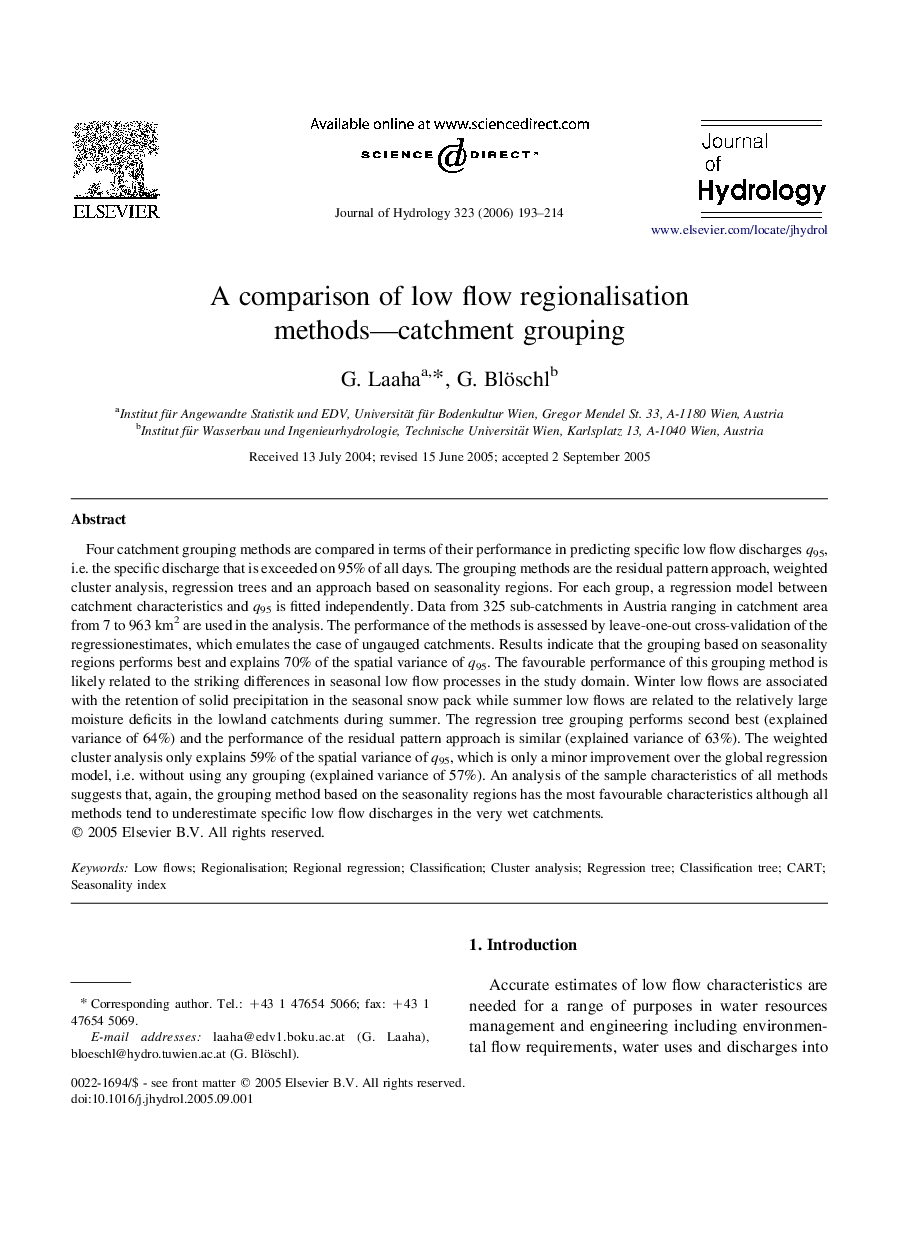| Article ID | Journal | Published Year | Pages | File Type |
|---|---|---|---|---|
| 4580629 | Journal of Hydrology | 2006 | 22 Pages |
Four catchment grouping methods are compared in terms of their performance in predicting specific low flow discharges q95, i.e. the specific discharge that is exceeded on 95% of all days. The grouping methods are the residual pattern approach, weighted cluster analysis, regression trees and an approach based on seasonality regions. For each group, a regression model between catchment characteristics and q95 is fitted independently. Data from 325 sub-catchments in Austria ranging in catchment area from 7 to 963 km2 are used in the analysis. The performance of the methods is assessed by leave-one-out cross-validation of the regressionestimates, which emulates the case of ungauged catchments. Results indicate that the grouping based on seasonality regions performs best and explains 70% of the spatial variance of q95. The favourable performance of this grouping method is likely related to the striking differences in seasonal low flow processes in the study domain. Winter low flows are associated with the retention of solid precipitation in the seasonal snow pack while summer low flows are related to the relatively large moisture deficits in the lowland catchments during summer. The regression tree grouping performs second best (explained variance of 64%) and the performance of the residual pattern approach is similar (explained variance of 63%). The weighted cluster analysis only explains 59% of the spatial variance of q95, which is only a minor improvement over the global regression model, i.e. without using any grouping (explained variance of 57%). An analysis of the sample characteristics of all methods suggests that, again, the grouping method based on the seasonality regions has the most favourable characteristics although all methods tend to underestimate specific low flow discharges in the very wet catchments.
